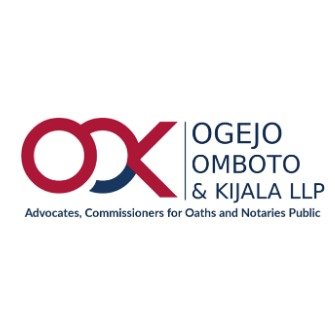Best Lawyers in Kenya
Share your needs with us, get contacted by law firms.
Free. Takes 2 min.
Or refine your search by selecting a city:
List of the best lawyers in Kenya
Legal guides written by Adroit Law LLP:
- Kenya Launches Digital Nomad Visa: A Gateway for Remote Workers
- Navigating the Payment System License Maze in Kenya
- Navigating the Complexities of Mining Licenses and Permits in Kenya: A Look into Artisanal and Large-Scale Operations
Kenya Legal Questions answered by Lawyers
Browse our 20 legal questions in Kenya and read the lawyer answers, or ask your own questions for free.
- My child is 2years 11 months and I want to add a father name to his birth certificate...what do I need and what the process and how much?
- During birth his father's name didn't appear.
-
Lawyer answer by Ruth Rotich & Company Advocates
Good Morning. Thankyou for your question. It is possible to add the father's name. Please reach out to us for more information on the process and costing. Looking forward to serving you.
Read full answer - Child support
- The user seeks advice about enforcing child support after the father, who lives abroad, has significantly reduced payments and denies paternity despite the user requesting DNA testing. The user is struggling financially and needs help securing support for the child. What legal steps can be taken?
-
Lawyer answer by Ruth Rotich & Company Advocates
We can file a child maintenance case.
Read full answer - Seal Stamping
- Hi, I got an employment contract with a company outside the country and they want the document to be signed and stamped with a seal stamp from a registered lawyer or advocate. Kindly let me know if there's a way I can be helped in this matter
-
Lawyer answer by Wahito Musonge and Company Advocates
Yes we can assist you with stamping the contract. We offer e-stamping services and so we can stamp the scanned/soft copy and send it back to you for transmission to the employer.
Read full answer
Kenya Legal Articles
Browse our 14 legal articles in Kenya written by expert lawyers.
- How to File for Divorce in Kenya: Step-by-Step Guide
- Family law in Kenya is mainly governed by the Marriage Act 2014, Matrimonial Property Act 2013, Children Act 2022, Protection Against Domestic Violence Act 2015, and the Law of Succession Act (Cap 160). All marriages in Kenya (civil, Christian, customary, Hindu, Islamic) must involve spouses who are at least 18... Read more →
- What to Do After a Car Accident in Kenya: Step-by-Step Guide
- Limitation is strict: most personal injury claims in Kenya must be filed within 3 years, workplace injuries must be lodged with DOSHS within 12 months, and claims against public authorities can be limited to 12 months. Start with evidence: get a Police Abstract, treatment notes, receipts, and a medical report.... Read more →
- Debt Collection Agencies in Kenya: What You Need to Know
- As legal professionals, advising clients on debt matters or engaging third parties for recovery requires navigating a complex landscape. Concerns surrounding the methods and effectiveness of debt collection agencies in Kenya are common, alongside critical questions about compliance and ethical conduct within the debt recovery process in Kenya.In Kenya's dynamic... Read more →
About Hiring a Lawyer in Kenya
When hiring a lawyer in Kenya, it's essential to understand the structure of the legal profession and the resources available. Lawyers in Kenya must be registered with the Law Society of Kenya (LSK) and possess a valid practicing certificate. The initial step is to identify the type of legal help you require, such as family law, criminal defense, real estate, or corporate advice. Depending on your needs, you can then search for a law firm or individual lawyer with the relevant expertise. Consultation fees and ongoing costs can vary, so it is advisable to discuss these upfront. It's recommended to seek referrals from trusted sources, such as friends or professional networks, to ensure you engage a reputable lawyer.
Why You May Need a Lawyer
In Kenya, there are numerous situations where seeking legal counsel may be necessary. Common scenarios include:
- Business establishment and compliance with corporate regulations.
- Property transactions, including buying, selling, and disputes over land ownership.
- Family matters such as divorce, child custody, and inheritance issues.
- Criminal charges or accusations requiring defense strategies.
- Employment disputes, including contractual issues and unfair dismissal claims.
Lawyers can provide the advice you need to navigate the legal system, ensure compliance with the law, and represent your interests in court or during negotiations.
Local Laws Overview
Kenya's legal system is based on Kenyan statutory law, English common law, and various customary laws. Here are key aspects relevant to legal practice:
- Constitutional Law: Kenya's Constitution, adopted in 2010, is the supreme law and guarantees fundamental rights and freedoms.
- Laws of Contract: Govern agreements and their enforcement, including business transactions, loans, and services.
- Family Law: Covers marriage, divorce, and succession, with an emphasis on customary practices.
- Land Law: Regulates property ownership, particularly significant in public and private land disputes.
- Employment Law: Provides guidelines for employment contracts, wages, and labor rights.
- Criminal Law: Defines offenses and legal procedures for prosecution and defense.
Understanding these laws helps both clients and lawyers navigate the legal landscape effectively.
Frequently Asked Questions
How do I find a qualified lawyer in Kenya?
Check the Law Society of Kenya's database for verified lawyers, ask for referrals, and research law firms online to find a qualified professional.
Are lawyers in Kenya expensive?
The cost can vary depending on the lawyer’s experience, the complexity of your case, and the law firm’s pricing policy. It's important to discuss fees upfront.
Can a lawyer represent me in court without my presence?
In some cases, such as preliminary hearings or motions, a lawyer can appear on your behalf. However, your presence may be required for significant proceedings.
What should I bring to my first consultation?
Bring any relevant documents, identification, and a clear outline of your legal issue to facilitate a productive discussion.
What if I am dissatisfied with my lawyer’s performance?
You can address your concerns directly with the lawyer, seek mediation through the Law Society of Kenya, or lodge a formal complaint if necessary.
Is legal aid available in Kenya?
Yes, the government and various NGOs offer legal aid for those who qualify, particularly in criminal and human rights cases.
How long does a legal proceeding typically take in Kenya?
It varies based on the type and complexity of the case. Simple issues may resolve in weeks, while complex cases could take months or years.
Can I change lawyers if I am unhappy with mine?
Yes, you have the right to change lawyers, but you should review your agreement for any terms regarding payment obligations.
What is the role of the Law Society of Kenya?
The LSK regulates the legal profession, ensures lawyers maintain professional standards, and provides educational resources.
Are arbitration and mediation used in Kenya?
Yes, both are increasingly popular for resolving disputes outside of court, especially in commercial and family law cases.
Additional Resources
Consider reaching out to the following resources for more assistance:
- Law Society of Kenya (LSK): For lawyer verification and professional conduct complaints.
- FIDA Kenya: Offers legal aid, especially in family law and gender-based cases.
- Kenya Judiciary Website: For information on court processes and case statuses.
- National Council for Law Reporting (Kenya Law): Provides access to legal resources, including statutes and case law.
Next Steps
If you require legal assistance in Kenya, start by identifying your legal issue and researching potential lawyers or firms with expertise in that area. Schedule consultations to evaluate their experience and fee structure. Once you’ve made a selection, ensure all terms are clearly outlined in a written agreement. For ongoing issues, maintain clear communication with your lawyer and stay informed about your case's progress. Should you require further guidance, consider reaching out to the Law Society of Kenya or other relevant legal aid organizations for support.
Lawzana helps you find the best lawyers and law firms in Kenya through a curated and pre-screened list of qualified legal professionals. Our platform offers rankings and detailed profiles of attorneys and law firms, allowing you to compare based on practice areas, experience, and client feedback.
Each profile includes a description of the firm's areas of practice, client reviews, team members and partners, year of establishment, spoken languages, office locations, contact information, social media presence, and any published articles or resources. Most firms on our platform speak English and are experienced in both local and international legal matters.
Get a quote from top-rated law firms in Kenya — quickly, securely, and without unnecessary hassle.
Disclaimer:
The information provided on this page is for general informational purposes only and does not constitute legal advice. While we strive to ensure the accuracy and relevance of the content, legal information may change over time, and interpretations of the law can vary. You should always consult with a qualified legal professional for advice specific to your situation.
We disclaim all liability for actions taken or not taken based on the content of this page. If you believe any information is incorrect or outdated, please contact us, and we will review and update it where appropriate.
Refine your search by selecting a practice area.
Accidents & Injuries
Banking & Finance
Bankruptcy & Debt
Business
Civil & Human Rights
Consumer Rights
Corporate & Commercial
Criminal Defense
Employment & Labor
Energy, Environment & ESG
Family
Immigration
Insurance
Intellectual Property
Lawsuits & Disputes
Media, Technology and Telecoms
Notary Services
Private Client
Real Estate
Browse law firms by city in Kenya
Refine your search by selecting a city.




































